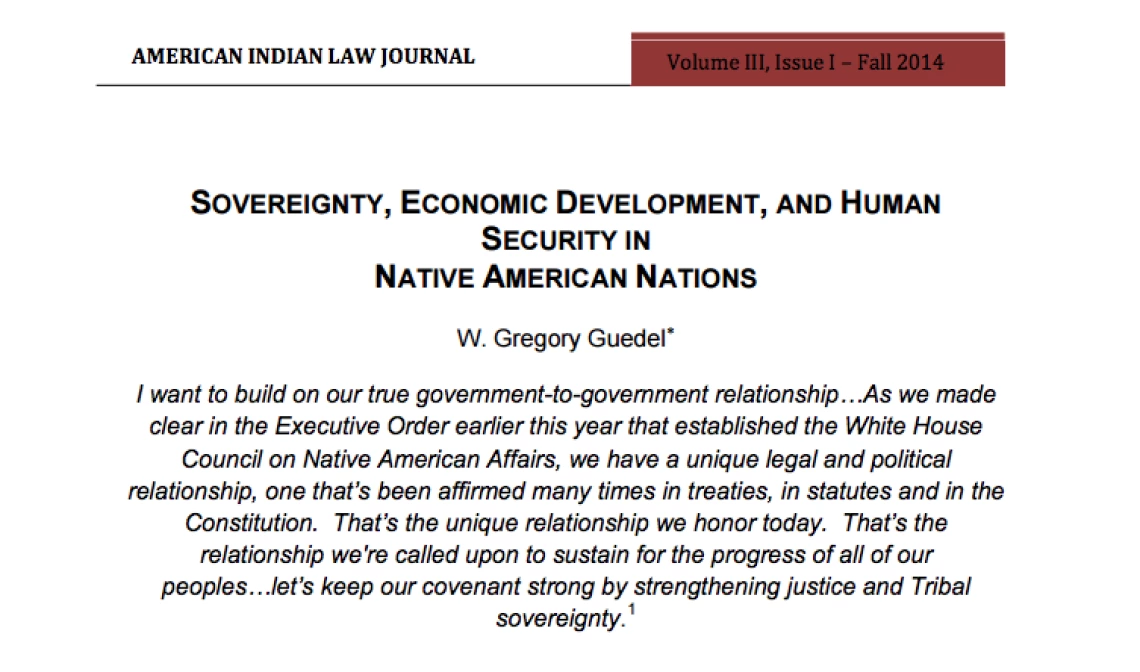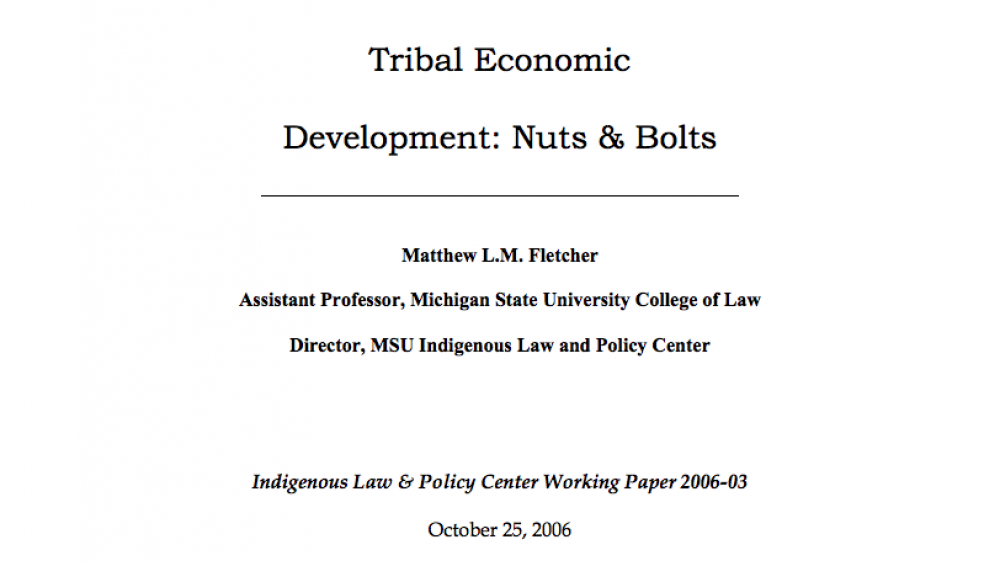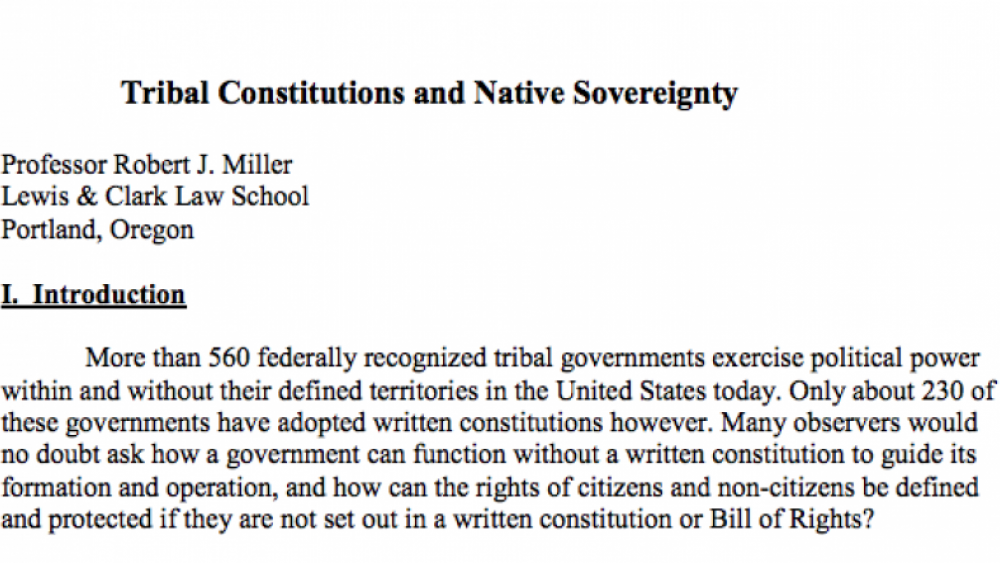This study explores elements of the sovereignty dynamic in the government-to-government relationship between the United States and Native American nations to assess 1) what benefits Tribal communities glean from this unique relationship; and 2) whether enhanced Tribal sovereignty can enhance overall quality of life for Native Americans.
Additional Information
Guedel, W. Gregory. "Sovereignty, Economic Development, and Human Security in Native American Nations." American Indian Law Journal. Volume III: Issue I, 17-39. Fall 2014. Paper. (https://digitalcommons.law.seattleu.edu/ailj/vol3/iss1/2/, accessed November 30, 2023)




